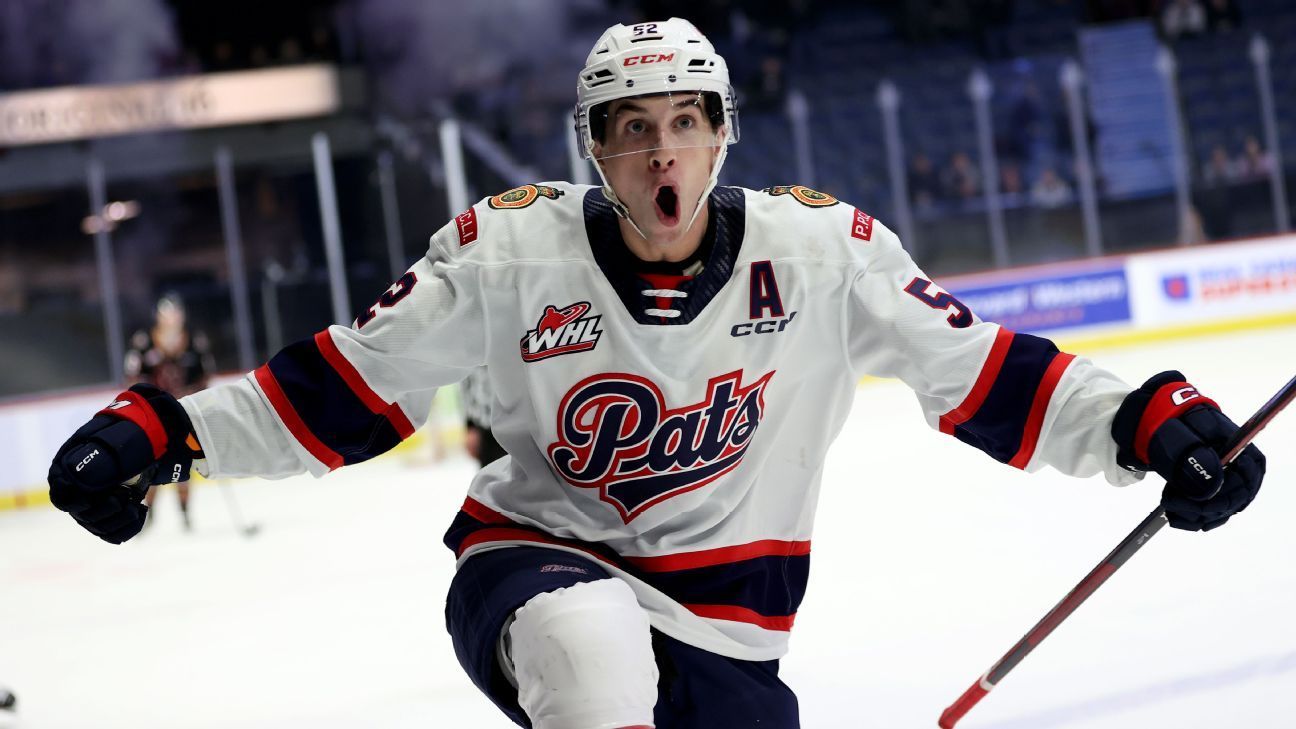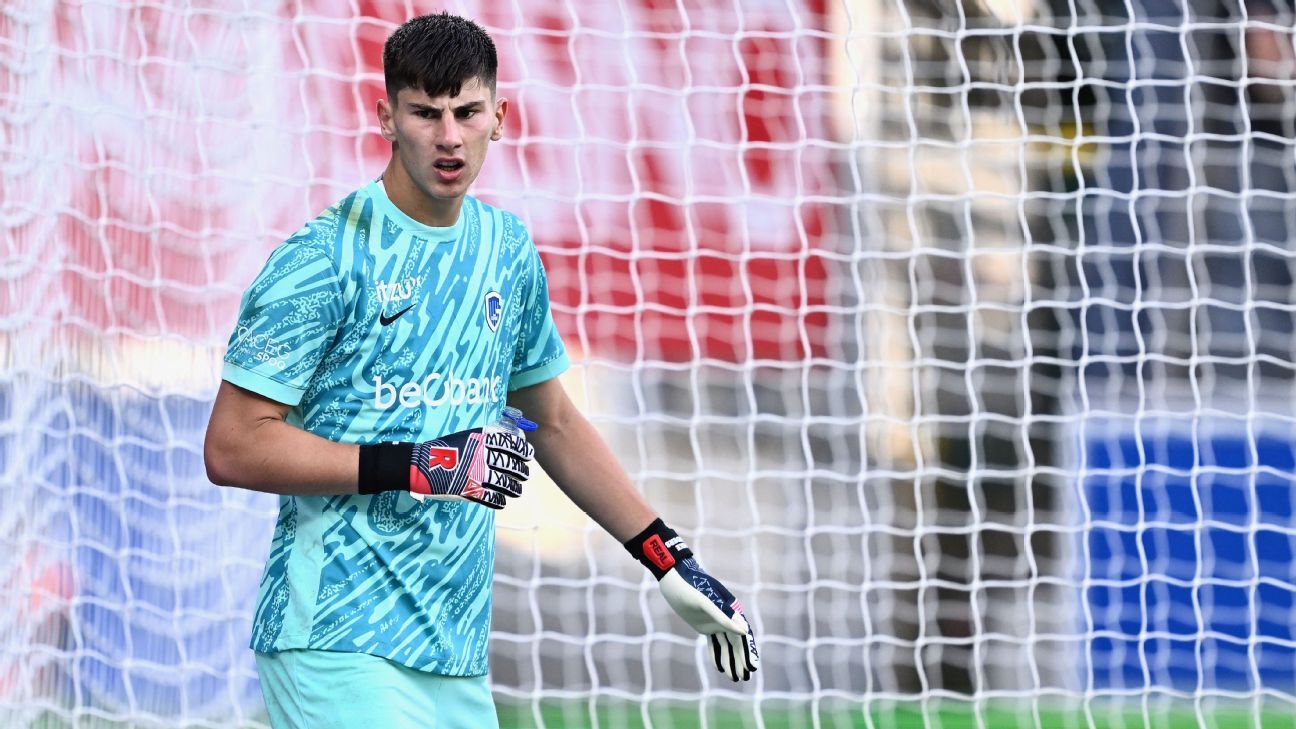Braxton Whitehead of the Western Hockey League's Regina Pats has received a verbal commitment for the 2025-26 season from Arizona State University's Division I program despite NCAA eligibility rules that prevent any player who has appeared in a major junior hockey game from playing college hockey.
This is the first NCAA commitment for a Canadian Hockey League player since a class-action lawsuit was filed against the NCAA and 10 universities in August, alleging that eligibility rules violate antitrust laws. The suit seeks to allow players to play hockey at both the junior and college levels, which would be a drastic change to the landscape of player development.
Regardless of whether that lawsuit is successful or not, Whitehead and Arizona State are confident those restrictions will be lifted before he joins the Sun Devils in 2025.
“[ASU’s] “The motto is 'Be the tradition' and I think they love the idea of me being a pioneer in all of this and leading the way for NCAA-CHL relations,” Whitehead told ESPN on Thursday. “I'm very hopeful that [the rules] will be reversed before the 2025-26 season.”
The NCAA has deemed anyone who played in the CHL (comprised of the WHL, Ontario Hockey League and Quebec Maritimes Junior Hockey League) ineligible because there are players who have signed professional contracts with NHL teams that play in those leagues. CHL players also receive a monthly stipend that is capped at $250.
NCAA Rule 12.2.3.2 states that “an individual shall be ineligible to participate in intercollegiate athletic competition if he or she has ever competed on a professional team.”
In August, OHL player Rylan Masterson challenged that rule. He filed a class-action lawsuit in the U.S. District Court for Western New York against the NCAA and 10 universities over what the suit called a “group boycott” of Canadian junior players. He claimed the boycott “prevents competition between the CHL and NCAA for high-level players and thereby artificially suppresses player compensation and artificially creates less competitive leagues,” which he argued was “illegal under antitrust laws.”
Whitehead, a 20-year-old forward, is entering his fifth and final season with the Pats. He has played in 195 games in the WHL, scoring 52 points in 52 games last season.
The Arizona State men's hockey program declined to comment, citing NCAA rules about discussing players before they officially sign.
There has been increased debate in college hockey about removing restrictions on CHL players, especially after the NCAA’s name, image and likeness rules were relaxed in 2021. Supporters of changing the CHL rules pointed to highly paid athletes in other sports, such as Olympic swimmers, who had retained NCAA eligibility; and noted that some college hockey programs welcomed players who had played professional games overseas without being barred by the NCAA from playing in college.
“Anybody who loves hockey and developmental leagues has been watching what's been happening in the NIL space and the transfer portal space, trying to imagine if this is going to have implications for the future of how junior hockey players are developed,” WHL commissioner Dan Near said. “I think this could be the first domino to fall in that regard.”
For Whitehead, it was the proposed class-action lawsuit that really laid the groundwork for Arizona State's commitment.
The proposed class-action lawsuit was not unexpected for the NCAA. In 2023, during a review of its policies, the NCAA determined there was a legal vulnerability in a potential “group boycott” of Canadian youth players. But the programs’ coaches never took formal steps to remove the rule before the lawsuit was filed.
While removing the restrictions would expand the talent pool for NCAA hockey, there is fear among some coaches that elite talents will opt out of playing college hockey without the current pressure of losing eligibility if they choose Canadian juniors instead.
“It's forced kids to decide from a young age what path they want to take,” Near said.
Whitehead said he wanted to play college hockey in the United States since he grew up in Alaska. The proposed class-action lawsuit “piqued my interest,” he said. Whitehead sent several letters to NCAA programs, including Arizona State, his No. 1 choice.
“I hit the jackpot with everything that's going on right now,” he said. “I think [the suit] “It gave me that extra step to take a risk and try something that had never been done before.”
Whitehead informed his Regina teammates of his commitment on Thursday after rumours about it circulated in the locker room.
“I know my teammates really well and they're always supportive when I want to try new things. Once I got over the nerves, everyone was really happy,” Whitehead said, adding that some of them are interested in “following in my footsteps” when it comes to NCAA commitments.
Whitehead's commitment to ASU could open the floodgates for CHL players. According to an NCAA hockey source, some college programs are “already allocating recruiting budgets” to send scouts to CHL games this season to recruit players.
“We're thrilled that one of the options for WHL players after graduation is the NCAA, should that change,” Near said. “The more options our players have upon leaving our league, the better.”
ESPN's Kristen Shilton contributed to this report.












